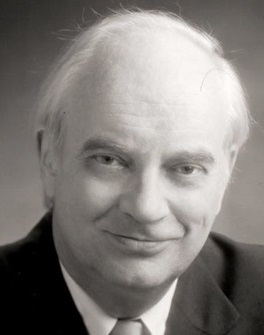 On August 5, 2017, Vanderbilt University lost one of its most popular professors. Samuel T. McSeveney, professor of history emeritus, died after a short but devastating illness. Born in Brooklyn in 1930, the son of Irish and Scottish immigrants, Sam never lost his love for New York and its cultural riches. He entranced many audiences over the years with his lectures on the 19th-century maturation of the city and its environs.
On August 5, 2017, Vanderbilt University lost one of its most popular professors. Samuel T. McSeveney, professor of history emeritus, died after a short but devastating illness. Born in Brooklyn in 1930, the son of Irish and Scottish immigrants, Sam never lost his love for New York and its cultural riches. He entranced many audiences over the years with his lectures on the 19th-century maturation of the city and its environs.
McSeveney earned his BA in history at nearby Brooklyn College in 1951 and an MA at the University of Connecticut in 1953. After two years in the Army, he moved to the University of Iowa, where he completed his PhD in history in 1965. Meanwhile, in 1960, he gained a faculty position at California State University, Los Angeles. Typical for Sam, in his six years there, he won an outstanding professor award for his teaching and developed several lifelong friendships. In 1966, he moved back home to Brooklyn College as a professor. In 1972, he won his position at Vanderbilt, in the field of 19th-century American history. In 1976–77, he was a visiting professor at the University of Leeds, in England. He retired in 2001.
McSeveney was one of a cohort of historians (including his Brooklyn classmate Joel Silbey) who revolutionized American political history in the late 1960s and early 1970s. Frequently referred to as the “ethnocultural” school, they sought to redirect the field away from personalities and policy to the study of voter behavior, using methods and insights drawn from political science. Underneath the noise of traditional narrative, they found long-term patterns of partisan allegiance, not necessarily bearing a clear relationship to the economic issues emphasized by the Progressive historians. Instead, they found that the wellsprings of partisan politics were closely tied to a complex of communal and cultural identities, frequently drawing from immigrant cultures and religious differences.
McSeveney was a major advocate for this school of interpretation, producing numerous articles and review essays drawing on his deep understanding of the ethnic cauldron of New York City. His most important contribution—a landmark in the field—was The Politics of Depression: Political Behavior in the Northeast, 1893–1896 (1972), in which he explored the complex ethnocultural politics of New York, Connecticut, and New Jersey. These states made a transition to a more “modern,” economically focused politics in the depression following the Panic of 1893, culminating in the election of 1896. Both the ethnocultural school and the related effort to delineate American political history as a succession of “party systems” have had their detractors, but their work continues to influence modern writing on American politics.
McSeveney followed The Politics of Depression with over a dozen articles and book chapters, most of which related to what some called quantitative history. He was very active in the Social Science History Association and chaired program committees for the Organization of American Historians and the Southern Historical Association. He won fellowships from the National Endowment for the Humanities, the Social Science Research Council, the American Council of Learned Societies, and the American Philosophical Society.
Sam was a perfect academic citizen at Vanderbilt. He served on over a dozen critical university committees, chaired his department from 1990 to 1994, and was a mentor to young professors. He became a personal friend of hundreds of students. Above all, he was a superb and much honored teacher. He won his college’s annual awards for both teaching and advising, and as a capstone of his career, he won the Chancellors Cup for his contribution to student and faculty relations off campus. He kept in touch with many of his students long after they graduated. He is honored with the Samuel T. McSeveney Award, bestowed each spring since 2012 on the author of the best research paper or essay written for a freshman history seminar at Vanderbilt.
Survivors include his wife Sandra, son Daniel, daughter-in-law Lisa, and grandson Connor. He is sorely missed by all who knew him.
Paul K. Conkin
Vanderbilt University
Tags: In Memoriam North America Political History

This work is licensed under a Creative Commons Attribution-NonCommercial-NoDerivatives 4.0 International License. Attribution must provide author name, article title, Perspectives on History, date of publication, and a link to this page. This license applies only to the article, not to text or images used here by permission.
The American Historical Association welcomes comments in the discussion area below, at AHA Communities, and in letters to the editor. Please read our commenting and letters policy before submitting.
Comment
Please read our commenting and letters policy before submitting.






